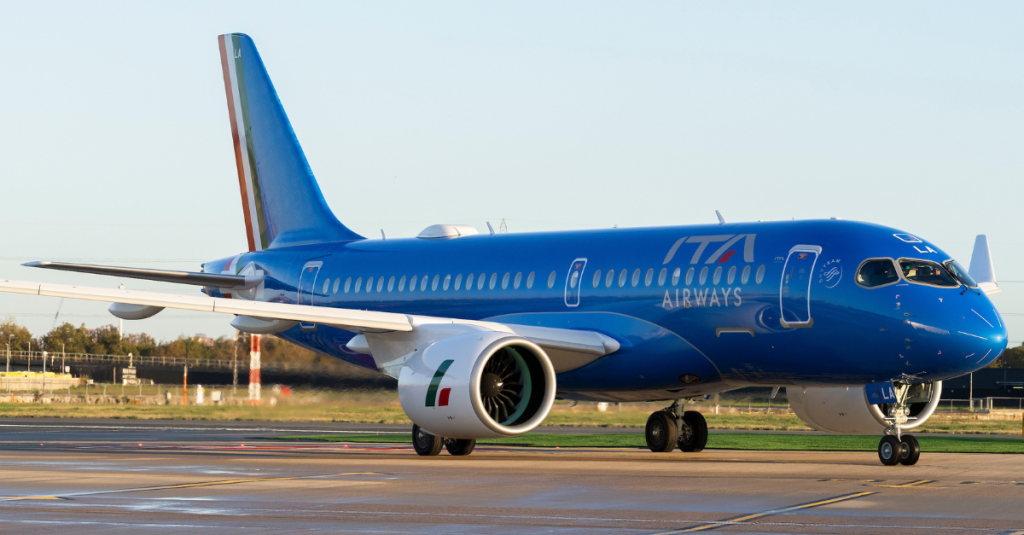Lufthansa’s plans to acquire a stake in ITA Airways have caught the attention of the European Commission, prompting an investigation. The move has raised concerns about potential impacts on competition within the airline industry.
This probe aims to examine how Lufthansa’s purchase of a 41% stake in the Italian carrier might affect market dynamics, especially on key air routes. The deal’s ramifications on other airlines using ITA’s network are also under review.
European Commission’s Investigation
The European Commission has launched an in-depth probe into Lufthansa’s acquisition intentions concerning ITA Airways. This investigation is set to delve into the potential repercussions of this acquisition on the competitive landscape of passenger air transport services across various key routes involving Italy. The Commission has expressed concerns that such a move by Lufthansa could limit competitive choices available to consumers in the short-haul and long-haul sectors.
Details of the Lufthansa-ITA Agreement
Lufthansa disclosed its intent to purchase a 41% minority stake in ITA Airways, which equates to an investment of €325 million, aimed at increasing ITA’s capital. This agreement includes provisions that might allow Lufthansa to expand its share or potentially acquire ITA completely, setting a strategic foothold in the Italian aviation market.
The German airline previously submitted commitments to address some initial concerns raised by the Commission. However, the dealings still sparked an extensive assessment due to ongoing competitive apprehensions in the aviation sector.
Implications for the Airline Market
Lufthansa and ITA are recognized as significant competitors in the air transport sector to and from Italy, intensifying scrutiny over the proposed deal.
The Commission’s investigation will also explore how the acquisition might affect other carriers that rely on ITA’s domestic routes to support their international operations. The fear is that this deal might concentrate market power, disadvantaging both local and international airlines.
Potential Market Impact
The potential acquisition of ITA by Lufthansa is viewed as a strategic move that could shift the competitive balance across European and potentially global aviation markets. Such transactions are closely monitored to ensure that fair competition is maintained, allowing all airlines equal opportunity to thrive.
Other airlines express concern that this alliance might create obstacles in accessing ITA’s comprehensive domestic network, hindering their operations and limiting consumer choice in travel options.
Timeline and Next Steps
The European Commission’s investigation is expected to span over a period of 90 working days, during which it will meticulously assess all facets of the agreement. ITA and Lufthansa have been cooperative, though the scrutiny adds pressure to finalize details that comply with European antitrust laws.
The outcome of this investigation could set a precedent for future deals within the aviation industry, particularly concerning intra-European airline acquisitions.
Reactions from the Industry
The initiation of this probe has attracted diverse reactions within the aviation sector, with stakeholders extensively debating the potential outcomes. Some argue the need for consolidation to sustain the industry’s financial health, while others question the long-term impacts on competition.
Industry experts underscore the importance of maintaining a level playing field, highlighting that compromised competition can lead to higher consumer costs and reduced service quality.
Conclusion of the Investigation
As Brussels evaluates the merits of the ITA acquisition by Lufthansa, the aviation market remains watchful. The decision could influence future policies and business strategies within the airline sector.
Maintaining competitive dynamics is crucial in ensuring consumer benefits and industry innovation, making the findings from this investigation pivotal for all stakeholders involved.
This probe into Lufthansa’s acquisition of ITA Airways offers significant insights into competitive practices within the European aviation sector. Stakeholders await the results, which may redefine competitive strategies and regulations.
The European Commission’s final decision will be crucial in determining the future landscape of air transport services across Europe, influencing both consumer choice and market accessibility.

